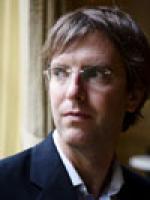Thursday, April 16, 2009 - 11:30am to 1:00pm
Coffman Memorial Union, Campus Club Conference Rooms A & B
All life and all human civilizations depend on biology. From the oxygen in the air that we breathe, to the plants or animals that we eat, to the fuels that keep us warm and power our houses, industries and vehicles, to our medicines and clothes. 35 years ago, scientists first learned how to intentionally and directly manipulate DNA, the genetic material encoding life, using crude tools to construct relatively simple genetic programs. These early tools led to the birth of the biotechnology industry, resulting in new drugs and therapies, as well as many new controversies and unmet promises. Today, much more powerful tools are rapidly being developed in order to help make biology easier to engineer, via a new field of research known as Synthetic Biology.
Already, scientists and engineers have used early forms of these tools to construct genomes, the entire DNA program for an organism, from raw chemicals. Young students have already developed simple genetic programs of their own designs, producing bacteria that can take a photograph or smell as bananas. As biology becomes easier to engineer, many more individuals and groups, not just researchers, will likely have the opportunity to use biotechnology to solve their own problems, just as many people today can program computers or author a webpage. What role should each person, group, and nation have in our future biotechnology world? How will we all best work together to make sure that we choose to apply future biotechnologies for overwhelming good?
Commentators:
Mike Osterholm, PhD, MPH
Director, Center for Infectious Disease Research and Policy (CIDRAP)
Professor, Division of Environmental Health Sciences, School of Public Health
University of Minnesota
Bill McGeveran, JD
Associate Professor, Law School
University of Minnesota
Continuing Legal Education credit (CLE) was approved (1.5 hours)

Drew Endy, PhD, is an Assistant Professor in the Department of Bioengineering at Stanford University and a Co-founder and President of the BioBricks Foundation (BBF) a not-for-profit organization that is working to develop legal and economic strategies needed to support open biotechnology. Prof. Endy's research interests are the engineering of integrated biological systems and error detection & correction in reproducing machines.
In 2002, he started as a fellow in the Department of Biology and the Biological Engineering Division at MIT; he joined the MIT faculty in 2004. Drew co-founded the MIT Synthetic Biology working group and the Registry of Standard Biological Parts, and organized the First International Conference on Synthetic Biology. In 2004 Endy co-founded Codon Devices, Inc., a biotechnology startup. He earned degrees in civil, environmental, and biochemical engineering at Lehigh and Dartmouth. He studied genetics & microbiology as a postdoc at UT Austin and UW Madison. From 1998 through 2001 he helped to start the Molecular Sciences Institute, an independent not-for-profit biological research lab in Berkeley, CA.